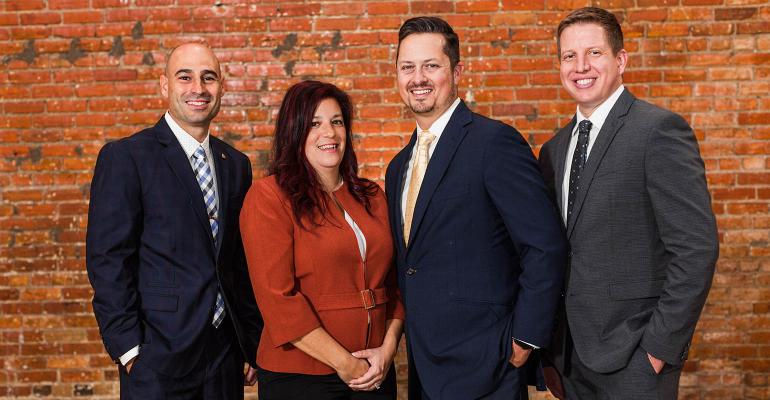Steward Partners Global Advisory is establishing a new division with the acquisition of Freedom Street Partners from Raymond James. The 7-year-old firm has 38 employees—including 28 advisors—17 locations and $3.2 billion in managed assets.
Dubbed the Freedom Street Division, the channel will comprise all firms brought in under Steward’s brand-new acquisition model. With one exception, Steward has exclusively added new advisors through recruitment, growing the firm from $50 million to around $28 billion in the decade since its founding. (The one exception was the firm’s purchase of Umpqua Investments in 2021, a move that brought brokerage services in-house.)
Freedom Street will form the foundation of the new division, which will be operated by the firm’s management team alongside Steward and provide a destination for advisors in need of a succession solution. Most, if not all, Freedom Street advisors will join Steward as equity partners and employees when the deal closes before the end of the year, but one or two may opt to join under Steward’s recruitment model and affiliate instead.
“Leveraging Steward Partners' deep resources and expertise in the wealth advisory space allows us to provide our clients with enhanced access to the very highest level of expertise and service, and also frees additional resources as we continue to grow the business as a new division of Steward Partners,” Freedom Street CEO Scott Danner said in a statement.
"The addition of Freedom Street Partners as the foundation of our new Freedom Street Division creates a new valuable, high-growth business segment at Steward Partners where we have had high demand from advisors and wealth management firms considering a transition from their current situations," added Steward President and COO Hy Saporta.
Steward is getting into the M&A game to meet that demand and capture other growth opportunities the firm sees in the market, CEO Jim Gold told WealthManagement.com. He noted the number of independent RIAs—about 15,000—and said many are reaching a point where further growth becomes difficult and selling makes sense to achieve the benefits of partnership and scale.
“We also have advisors we’re talking to who just don’t want to be owners anymore and get back to running their business,” he said. “And then, you have the RIA and wirehouse breakaways that now want to sell—which is a new dynamic. Especially from the wirehouses, because the wirehouse deals, on average, you're talking one- or two-times revenue and that's typically paid somewhere between five and 10 years after retirement."
Steward's move makes sense because "the good, strong breakaways do have the opportunity to view themselves as a future enterprise partner of a meaningful firm, and that would definitely achieve their highest value," said John Langston, founder and managing partner at industry-focused investment bank Republic Capital Group.
"There's more value for the breakaway, but there's also a lot more value for the partnership because their revenue isn't rented and their asset retention and the potential that they'll stay on with the firm is a lot more attractive to the outside investor," he said.
“All these things lead to M&A,” Gold said. “And I want the growth funnel to be as wide as possible; I want to have as many options as possible.”
Acquired firms are given the option of co-branding, joining under Freedom Street or simply moving under the Steward name. Gold said full acquisitions are preferred but he is open to other arrangements in the right situations.
“We pride ourselves on flexibility and optionality, so we’re not going to draw any lines in the sand, but I think our general premise is going to be that we want to buy the whole thing,” he said. “If there's a really, really great opportunity that is a minority stake or a majority, but not a whole purchase, we’ll certainly look at that and see if it makes sense.
“In a minority situation, there would have to be really positive and extenuating circumstances such as corporate fit or the ability to grow it in conjunction with another group,” he added.
Steward's existing capabilities around recruitment bode well for the success of the new model, said David DeVoe, founder and CEO at RIA-focused M&A advisory firm Devoe & Co.
"Hightower is proof of concept that this transition can be made successfully," he said.
Steward currently has seven or eight potential acquisitions in the pipeline, according to Gold, and has been fielding requests from existing affiliates who want to eventually transition their practices to the new division. With locations across New England, the Mid-Atlantic, Southern and Northwest United States, the Freedom Street acquisition will help to bolster regional expansion efforts there, he said.
Steward has had its best recruiting year ever in 2023, onboarding about $6 billion in assets to date, and Gold expects the new division will only amplify that growth.
“This deal is a little more than half of that,” he said. “So then extrapolate that out five years.”
Majority owned by employees, Steward is minority-backed by Cynosure and The Pritzker Organization. In late 2022, the firm received a $140 million credit facility led by alternative investment firm Apogem Capital to support recruitment and, now, acquisitions.





